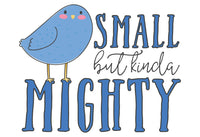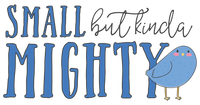At home learning activities during lockdown - fun for all ages and abilities
If you've done any searching you can find tons of ideas out there for at-home learning activities. The biggest challenge for me is finding ideas for older children. In particular, finding activities and learning through play ideas for my two autistic teens (one of them non-verbal) is virtually impossible. So, we invent our own or adapt ideas from elsewhere!
My goal here is not to create activities specifically for autistic children but activities that all children can participate in and learn from. My basic strategy is to combine toys, stories and invitations to play. These all reinforce each other and make it easier for me to discover other interests, which in turn lead to other activities and play opportunities. My latest video is a demonstration of this strategy that I refer to as a "virtuous cycle"
For those of you who are playing with kids of different ages and abilities, here are five tips that work well for us:
- Presume competence. Whether you're playing with toddlers or autistic teens, always work on the assumption that kids understand what you're saying!
- Model the vocabulary you want kids to learn. Again, whether the emerging communicator is a toddler or non-speaking teen, always be modelling. Owen communicates using an iPad app called LAMP Words for Life. You may notice in the video that I have an iPad. I was using it to model putting words and phrases together like, "I found an astronaut", "it's my turn" "put your hand in" and "see what you can find". Owen's vocabulary is huge but he still needs to learn how to put words together and use them expressively, so I model that for him.
- Scaffold your language. Always try and speak at a level that is slightly more challenging than a child uses expressively. Some examples:
- In the case of a toddler you may want to emphasize one or two words - "you found", "my turn", "put in", "let's look"
- In Oliver's case I try and use words and concepts he's unfamiliar with as he will usually ask me to explain them
- For Owen, my goal is to use his iPad app to model phrases and sentences
- Follow and leverage interests. In the video you will notice I ask Oliver if he knows who Katherine Johnson was. As he didn't, we later read the book, Counting on Katherine together. I knew he was unlikely to be massively interested in the story of a female mathematician, but he loves space and heroism. So I explained that she used math to save the astronauts on Apollo 13 when there was an explosion on their spacecraft - interest achievement unlocked!
- Focus on "age appropriateness" in terms of content only. Try not to police the things your kids are interested in. Watch out for phrases like, "that's only for babies!" I certainly don't want to infantilize my disabled teens but I'm also fine with them continuing to be interested in Toy Story, stuffed toys and picture books. If I can use their love of Buzz Lightyear as a way to encourage them to read a non-fiction book like Spaceships and Rockets then as far as I'm concerned that's a win-win.
Do you have any tips that work well for you when playing with kids of different ages and/or abilities? If yes, feel free to share them in the comments!
In case you're interested in any of the books or other resources mentioned in the video, here's a list with links:
Activity ideas
At home Planetary sensory play walk in action
Nature Scavenger Sound Hunt in action
How to make a nature (or moon) journal
Craft with yarn and popsicle sticks - make a butterfly (or moth)!
Stories and social stories on helping kids with life changes and transitions
How to make aromatherapy, cooling, calming moon dough
How To Make A Homemade Bottle Rocket - Fun, Easy, and Awesome!
Book recommendations
SBKM resources
FREE Nature journaling for kids guide
Includes links to websites, books, videos and articles as well as recommendations for books to read with children of all ages to encourage them to spend time and play outside as well as observe, learn from and feel more connected to nature (especially in urban environments)
FREE planetary sensory walk
Includes 8 recipes for sensory play bin contents, (including home-made kinetic sand, cloud dough and oobleck) plus a bonus moon dough recipe, together with fun planetary and science facts and sensory play ideas
Grumpy Moon story and social story (standalone package) for helping kids deal with changes, transitions, stress and overwhelm
Backyard Buddies Play Set
Sun, Moon and Stars Play Set
NOTE: This blog post contains affiliate links that allow you to find the items mentioned and support SBKM at no cost to you. While SBKM may earn minimal sums when you use the links, you are in NO WAY obligated to use these links. Thank you for your support!




Leave a comment